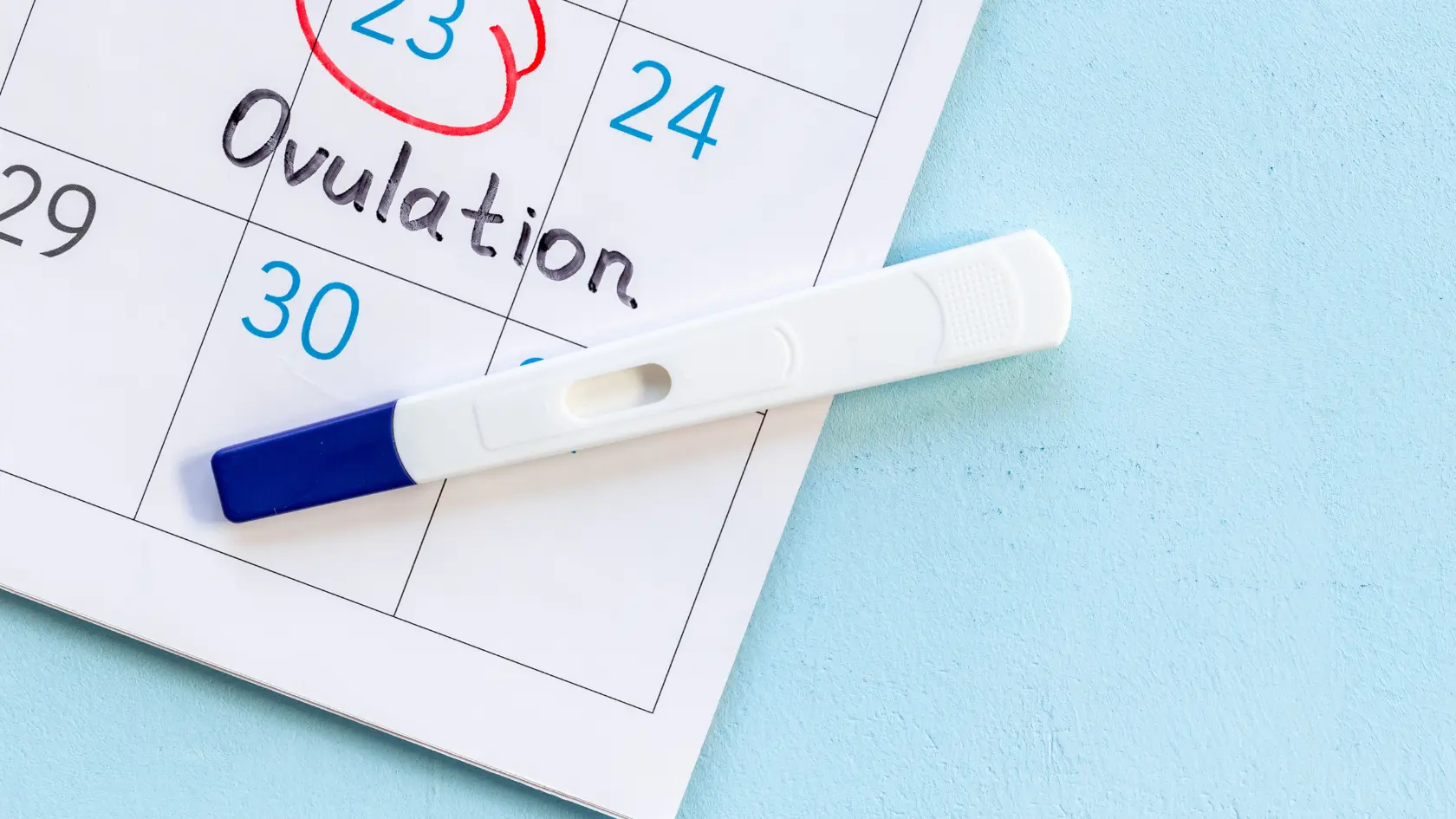A woman with a cryptic pregnancy is pregnant but doesn’t know it until late in the pregnancy or even until she gives birth. This strange state of pregnancy is rare, but it happens more often than people think. Because the woman’s body doesn’t respond in the usual way and there aren’t any typical pregnancy symptoms, the diagnosis is delayed, which can leave her unprepared for labor.
You are in the right place if you think you might be having a cryptic pregnancy or want to know more about it. In this main post, we’ll go over everything you need to know about cryptic pregnancy symptoms, how to tell if you’re having a cryptic pregnancy, and the unusual phenomenon of cryptic pregnancy signs that often go unnoticed.
What Is a Cryptic Pregnancy?

A cryptic pregnancy is defined as when the woman is not aware that she is pregnant and in some cases, the pregnancy may extend to a second or even third trimester until the woman delivers her baby. The woman might not experience the normal pregnancy symptoms such as nausea, a swelling belly, or missed periods during this period. This usually creates confusion and in some instances denial which translates to late medical intervention.
In a normal pregnancy, missing a period, morning sickness, nausea, and an enlarged belly are the common symptoms that are noticeable at an early stage, and hence can be easily diagnosed. Still, pregnant women with a cryptic pregnancy can go on with their daily routine with little or no pregnancy effects, and thus, it is incredibly hard to notice the condition.
How Is a Cryptic Pregnancy Different from a Regular Pregnancy?
Whereas a normal pregnancy is predictable with certain manifestations or symptoms being evident, like morning sickness, craving, and a bump, a cryptic pregnancy entails the occurrence of faint or missing signs. The body can either fail to generate the normal hormonal changes or conceal them in a manner that the woman fails to notice that she is pregnant.
In fact, some women with cryptic pregnancies continue to menstruate lightly during the early stages or experience symptoms that resemble their normal health cycles. This is why the condition can often be mistaken for other issues like hormonal imbalance, stress, or weight gain.
Common Symptoms of Cryptic Pregnancy

The symptoms of cryptic pregnancy can vary greatly depending on the individual and the stage of pregnancy. Here are some of the most common cryptic pregnancy symptoms that can occur:
1. Irregular Periods and Spotting
One of the most confusing aspects of a cryptic pregnancy is that women often still have irregular periods or light bleeding. This could be mistaken for a regular cycle, especially if the woman has had a history of irregular periods. Sometimes, this spotting may even resemble the regular menstrual flow, making it even harder for women to detect early signs of pregnancy. These irregularities can continue throughout the early months, adding to the confusion.
2. Absence of Typical Pregnancy Symptoms
Many women experience cryptic pregnancy symptoms without the usual signs, such as:
- Morning sickness: Many women who are cryptically pregnant don’t feel sick or throw up like they do in early pregnancy. This lack of symptoms can make it harder to tell you’re pregnant, since morning sickness is often one of the first clear signs.
- No pregnancy cravings: Hallmark symptoms of pregnancy may not be experienced such as food aversions or cravings. Or, rather, women may just have changes in their appetite or not, so it will be hard to notice the condition at the early stages.
3. Minimal Weight Gain
Unlike traditional pregnancies, cryptic pregnancy may involve minimal or no weight gain. This can be confusing, as many women may not realize they are carrying a child, thinking their body is simply going through normal fluctuations. Additionally, the lack of noticeable weight gain can lead some women to dismiss the possibility of pregnancy, even when other symptoms begin to appear later.
4. Absence of a Baby Bump
In many cases, women with a cryptic pregnancy do not develop the expected baby bump. While some women may have a small or very subtle belly, the growth of the belly can be minimal, leaving many unaware that they are pregnant. This can cause confusion, especially if the woman does not experience the typical stretching of the skin or sudden increase in size commonly seen in traditional pregnancies.
5. Fatigue
Fatigue is a common pregnancy symptom, but in a cryptic pregnancy, it may be dismissed as stress, poor sleep, or other lifestyle factors. Many women continue their daily routines without suspecting that their tiredness is due to pregnancy. This fatigue can be intermittent, often attributed to work, life stress, or other responsibilities, which may delay the woman in considering pregnancy as the root cause.
6. Back Pain
Lower back pain is a common complaint among pregnant women, but it can also be a symptom of a cryptic pregnancy. This type of back pain may be mistaken for something unrelated to pregnancy. It can be easily misinterpreted as the result of poor posture, standing for long periods, or other physical strains, making it harder to connect with the possibility of pregnancy in the absence of other classic symptoms.
7. Cravings or Hormonal Changes
Hormonal changes in cryptic pregnancy can lead to food cravings, but these may be less intense than those seen in typical pregnancies. Hormonal shifts may still cause changes in mood and food preferences, but they are often less pronounced. Some women may experience minor mood swings or desire for specific foods, but without the extreme cravings or aversions typical of a more detectable pregnancy.
How to Detect a Cryptic Pregnancy?

It may not be easy to know that you are pregnant cryptically, and in particular when you are not exhibiting the typical symptoms of pregnancy. The following are some of the ways that medical practitioners test cryptic pregnancy:
1. Blood Test for hCG
The most accurate way to detect pregnancy is through a blood test that measures hCG (human chorionic gonadotropin) levels. In cryptic pregnancy, the levels may be present but not as high as expected, making it difficult to diagnose initially. Such low hCG may at times be disregarded as a sign of a non-pregnancy condition. Nevertheless, this test remains the most appropriate method of identifying a pregnancy at its first stages of occurrence, particularly when the symptoms are insignificant or not present. By using this technique, early detection can be provided, and proper prenatal care will be ensured in the future.
2. Ultrasound
An ultrasound is another reliable method of detecting cryptic pregnancy. However, the condition can be hard to detect in early stages if the pregnancy is concealed or if the fetus is very small. The baby’s position may also be a factor that makes the detection more challenging. As the pregnancy progresses, the fetus can become more visible, and the diagnosis becomes clearer. By the second or third trimester, an ultrasound will typically reveal the pregnancy, but earlier in the term, it may require a more sensitive scan or technology to spot the signs.
3. Physical Examination
A physical exam may reveal certain pregnancy signs, but cryptic pregnancies often hide these signs. In many cases, women are not showing typical signs like a rounded belly or noticeable changes in the uterus. The uterus may remain small, or the woman may have a high-lying uterus that is harder to feel. Additionally, the absence of a visible baby bump or swelling in the abdomen can make the diagnosis difficult. In some cases, doctors may miss the pregnancy entirely during a routine pelvic exam.
4. Urine Tests
While home pregnancy tests often show a positive result, in some cryptic pregnancies, the test may show a faint positive or negative result due to low levels of hCG. This inconsistency can occur because the hormone is not at high enough levels to trigger a strong positive response. Repeated testing or a more sensitive blood test may be needed to confirm the pregnancy. Women with cryptic pregnancies may also experience fluctuating levels of hCG, which can complicate the test results further.
How Common Are Cryptic Pregnancies?
Cryptic pregnancies are considered rare but are not as uncommon as one might think. While exact statistics are hard to pin down, studies suggest that cryptic pregnancies account for a small percentage of all pregnancies. They are more likely to occur in women who:
- Have had irregular periods.
- Are overweight or obese.
- Do not receive regular prenatal care.
- Have hormonal imbalances or health conditions that mask typical pregnancy symptoms.
Despite the rarity of cryptic pregnancies, the condition is often underreported due to the lack of awareness and diagnosis in the medical community. Many women are simply unaware of the condition until labor begins.
Complications of Cryptic Pregnancy

Although a shocking, cryptic pregnancy is real, most of the women who undergo this are the ones who have a healthy baby in the end. However, there are several risks associated with cryptic pregnancy:
Late Prenatal Care
With the length of time taken to detect the pregnancy, women do not get prenatal care, which is vital for the health of both the mother and the baby. Unless health problems are promptly observed, the baby and the mother can have undiagnosed health problems, such as the risk of gestational diabetes, preeclampsia, or infections. Women who have cryptic pregnancies may also be deprived of regular screenings, vaccinations, and beneficial nutrition, physical activities, and prenatal vitamins. This negligence enhances the chances of complications, which may have an adverse effect on the overall result of the pregnancy.
Emotional and Psychological Impact
Pregnancy given out of the blue may shock and make one anxious, hence making it more difficult to prepare to deliver a child. When pregnancy occurs, it may cause shock, fear, and bafflement in many women. The psychological cost may be immense, especially when a situation overpowers or prepares the woman. There are also those who might be depressed or post-traumatic due to the suddenness of the pregnancy. These emotional issues may be inhibitory to the connection with the baby and may affect the general psychological health during the period when the baby is pregnant.
Risk During Labor
The lack of prenatal care can also increase the risk of complications during labor, such as preterm birth, complications with fetal development, or the need for emergency interventions. Due to the lack of monitoring, the baby may face undetected developmental delays, distress, or growth restrictions that could complicate delivery. Additionally, the mother may not be physically prepared for labor, which could result in exhaustion, complications like excessive bleeding, or even the need for cesarean sections. Without proper prenatal care, the entire labor experience could be much riskier for both mother and baby.
FAQ Section: Understanding Cryptic Pregnancy
1. What are the first signs of a cryptic pregnancy?
The first signs often include irregular periods, minimal weight gain, fatigue, and back pain. There may be no noticeable baby bump, and the woman might not experience typical pregnancy symptoms like morning sickness.
2. Can a blood test detect a cryptic pregnancy?
Yes, a blood test measuring hCG levels can confirm a cryptic pregnancy, but the levels may be lower than in a typical pregnancy, making it harder to detect early on.
3. Can a cryptic pregnancy cause any risks for the baby?
While cryptic pregnancies are usually not dangerous, delayed prenatal care can increase the risk of complications such as preterm birth, infections, or complications during labor.
4. How do doctors diagnose a cryptic pregnancy?
Doctors can diagnose a cryptic pregnancy through a combination of blood tests, ultrasounds, and physical examinations. The absence of typical symptoms can make the diagnosis challenging.
5. Is a cryptic pregnancy the same as a hidden pregnancy?
Yes, cryptic pregnancy is often referred to as a hidden pregnancy because the woman is unaware of her pregnancy until the later stages or labor.
6. What should I do if I suspect I have a cryptic pregnancy?
Should you suspect a cryptic pregnancy, then approach a medical professional to have the pregnancy examined properly through blood tests and an ultrasound, so that you are guaranteed of the existence of pregnancy and that you are getting the proper treatment.
Conclusion: Navigating Cryptic Pregnancy
A cryptic pregnancy can be hard to understand and even scary at times, but with the right care, most women can have a healthy pregnancy and delivery. It’s important to see a doctor right away if you think you might be pregnant with a cryptic pregnancy. Early detection and prenatal care are important for lowering risks and making sure the delivery goes smoothly and safely.
Women can better prepare for the unexpected and deal with this unique experience if they know how to spot cryptic pregnancy symptoms. If you notice any strange symptoms or think you might be pregnant, see a doctor right away to make sure you and your baby get the care and support you need.
Stay updated with every concern that may rise in pregnancy with Pregnancy Must –
- CVS Pregnancy Test: Detect Pregnancy Before Your Missed Period
- Gestational Hypertension Vs Preeclampsia: Protect Your Pregnancy
- Anemia ICD 10 During Pregnancy: What Moms Should Know









